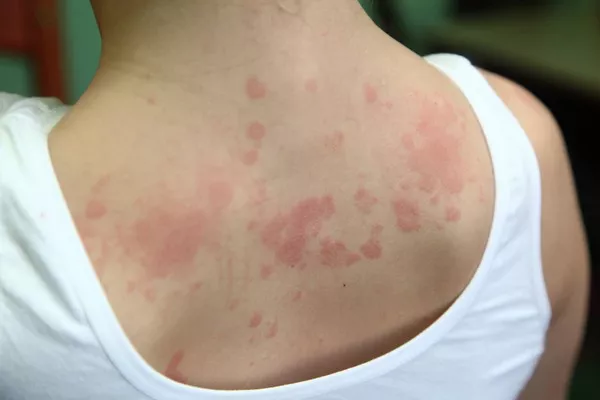Eczema, also known as atopic dermatitis, is a chronic skin condition that affects millions of people worldwide. Characterized by red, inflamed, and itchy skin, eczema can significantly impact a person’s quality of life. Managing and treating an itchy eczema rash requires a comprehensive approach that addresses both the symptoms and the underlying causes. This article will explore various strategies to effectively treat and manage eczema.
Understanding Eczema
Eczema is a multifaceted condition influenced by genetic, environmental, and immunological factors. It often begins in childhood and can persist into adulthood. The primary symptom of eczema is intense itching, which can lead to scratching and further skin damage. Common triggers include allergens, irritants, stress, and changes in temperature and humidity.
Symptoms and Diagnosis
The symptoms of eczema can vary widely but typically include:
- Red, inflamed skin
- Itching, which can be severe
- Dry, scaly patches
- Blisters that may ooze or crust over
- Thickened skin in chronic cases
Diagnosis is usually based on the appearance of the skin and the patient’s medical history. In some cases, a skin biopsy or allergy testing may be conducted to rule out other conditions or identify specific triggers.
Moisturizing: The Foundation of Eczema Care
Importance of Moisturizing
Moisturizing is a cornerstone in the treatment of eczema. Maintaining skin hydration helps to repair the skin barrier, reduce itching, and prevent flare-ups. Emollients, which are moisturizers that help soften the skin, are particularly effective.
Choosing the Right Moisturizer
When selecting a moisturizer, look for products that are fragrance-free and hypoallergenic to minimize the risk of irritation. Ointments and creams are generally more effective than lotions because they provide a thicker barrier against moisture loss. Ingredients such as ceramides, glycerin, and hyaluronic acid can be beneficial.
Application Tips
Apply moisturizer immediately after bathing to lock in moisture. This is often referred to as the “soak and seal” method. It’s also important to reapply moisturizer several times a day, especially on areas prone to dryness.
Topical Treatments
Corticosteroids
Topical corticosteroids are the most commonly prescribed treatment for eczema flare-ups. These anti-inflammatory medications help reduce redness, swelling, and itching. They come in various strengths, and the choice of steroid depends on the severity and location of the rash.
- Low-potency steroids (e.g., hydrocortisone) are suitable for sensitive areas such as the face and for children.
- Medium to high-potency steroids are used for more severe or persistent eczema on thicker skin areas like the palms and soles.
- It’s important to use corticosteroids as directed by a healthcare provider to avoid potential side effects, such as skin thinning.
Calcineurin Inhibitors
For areas where corticosteroids might not be appropriate, such as the face or groin, calcineurin inhibitors like tacrolimus (Protopic) and pimecrolimus (Elidel) can be effective. These medications work by suppressing the immune system to reduce inflammation and itching.
Topical Phosphodiesterase-4 Inhibitors
Crisaborole (Eucrisa) is a non-steroidal topical treatment that inhibits phosphodiesterase-4, an enzyme involved in inflammation. It can be used for mild to moderate eczema and is particularly useful for patients who cannot tolerate steroids or calcineurin inhibitors.
Systemic Treatments
For moderate to severe eczema that does not respond to topical treatments, systemic medications may be necessary.
Oral Corticosteroids
Oral corticosteroids can provide quick relief for severe eczema flare-ups but are generally used for short periods due to the risk of significant side effects, including weight gain, high blood pressure, and osteoporosis.
Immunosuppressants
Medications such as cyclosporine, methotrexate, and mycophenolate mofetil can be used to control severe eczema by suppressing the immune system. These drugs require close monitoring due to potential side effects and the risk of infections.
Biologics
Biologic therapies, such as dupilumab (Dupixent), target specific pathways in the immune system involved in eczema. Dupilumab has been shown to be effective in reducing symptoms and improving the quality of life for patients with moderate to severe eczema. It is administered via injection and is generally well-tolerated.
SEE ALSO: How to Treat Darkened Skin from Eczema
Lifestyle and Home Remedies
Bathing Practices
Proper bathing is essential for managing eczema. Use lukewarm water instead of hot water, as hot water can strip the skin of its natural oils. Limit baths or showers to 10-15 minutes and use gentle, fragrance-free cleansers.
Wet Wrap Therapy
Wet wrap therapy involves applying a wet bandage over a moisturizer or topical medication. This technique can help soothe severe flare-ups and enhance the effectiveness of topical treatments. Typically, wet wraps are worn for a few hours or overnight.
Managing Itch
To manage itching, keep nails trimmed short to reduce the risk of skin damage from scratching. Using cold compresses and antihistamines can also help alleviate itching. Behavioral techniques, such as habit reversal and mindfulness, may also be beneficial.
Diet and Nutrition
Some individuals with eczema find that certain foods can trigger flare-ups. Common culprits include dairy, nuts, and gluten. Keeping a food diary and working with a dietitian can help identify and eliminate trigger foods. A balanced diet rich in anti-inflammatory foods, such as fruits, vegetables, and omega-3 fatty acids, can support overall skin health.
Complementary and Alternative Therapies
Probiotics
Probiotics are beneficial bacteria that can help balance the gut microbiome. Some studies suggest that probiotics may improve eczema symptoms, particularly in children. Probiotic-rich foods like yogurt, kefir, and fermented vegetables can be beneficial, or probiotics can be taken as supplements.
Natural Remedies
Various natural remedies, such as coconut oil, sunflower oil, and colloidal oatmeal, have anti-inflammatory and moisturizing properties that can soothe eczema-prone skin. Always patch-test new products to ensure they do not cause irritation.
Acupuncture and Acupressure
These traditional Chinese medicine techniques may help reduce eczema symptoms by promoting relaxation and reducing stress, which can be a trigger for eczema flare-ups.
Managing Stress
Stress is a known trigger for eczema flare-ups. Incorporating stress management techniques into daily life can help reduce the frequency and severity of eczema episodes.
Mindfulness and Meditation
Practices such as mindfulness and meditation can help calm the mind and reduce stress. These techniques can be practiced at home using apps, online videos, or guided sessions.
Exercise
Regular physical activity is a great way to manage stress. Choose exercises that do not irritate the skin, such as swimming in chlorine-free pools, yoga, or walking.
Adequate Sleep
Good sleep hygiene is crucial, as lack of sleep can exacerbate stress and skin problems. Establish a regular sleep routine, create a comfortable sleeping environment, and address any sleep disturbances promptly.
When to Seek Professional Help
While many cases of eczema can be managed with over-the-counter treatments and lifestyle changes, it is important to seek professional help if:
- The rash is widespread or covers a large area of the body.
- There are signs of infection, such as increased redness, warmth, pus, or fever.
- Over-the-counter treatments are not effective.
- The itching and discomfort are severe and impact daily life.
A dermatologist can provide specialized care, including prescription medications and advanced therapies, to help manage severe eczema.
Conclusion
Treating itchy eczema rash requires a multifaceted approach that includes moisturizing, topical and systemic treatments, lifestyle modifications, and stress management. By understanding the triggers and symptoms of eczema, individuals can take proactive steps to manage the condition and improve their quality of life. It is essential to work closely with healthcare providers to develop a personalized treatment plan that addresses the unique needs of each individual with eczema.
Related Topics:

























